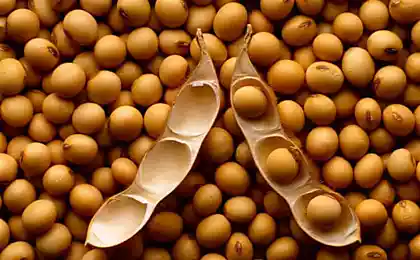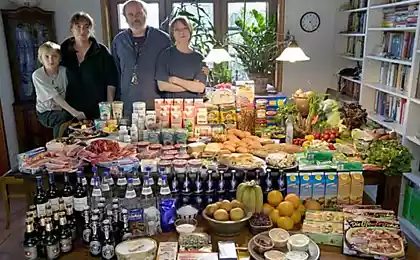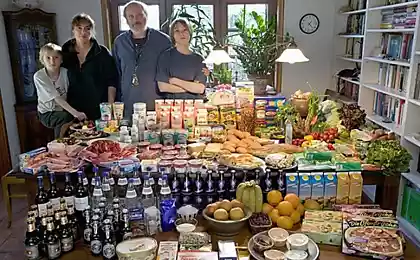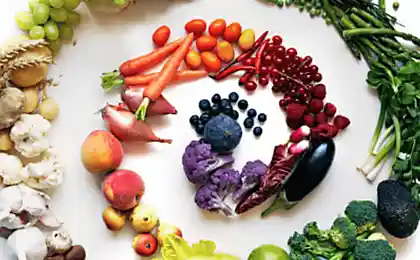449
7 smart tips on how to extend the shelf life of your products
With proper storage of vegetables and fruits, we not only extended the time of their use, we save money, but also care about our planet. Water, fertilizer and energy needed for transportation, delivery and storage, all this is also part of our products.
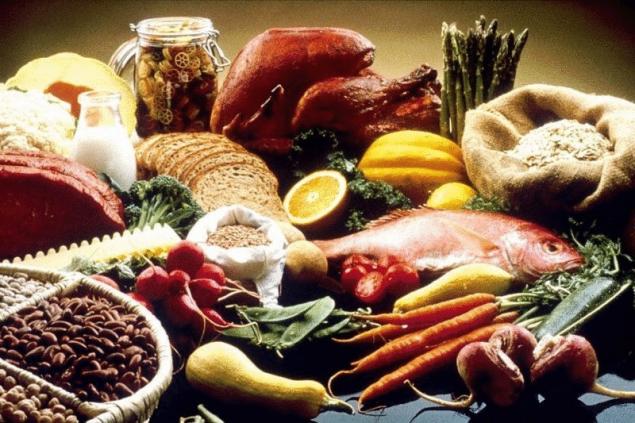
The good news is that with proper storage we will store this value to us calories and vitamins.
So, let's consider a few tips on how to extend the shelf life of our products.
1. Bouquets of greenery
Basil, parsley and cilantro want their stems were wet. Care of these herbs is the same as for cut flowers: trim the stems, keep them at room temperature and frequently change the water. In addition, they are so beautiful!
2. Cut sprouts, carrots
The greens of the carrots are actually edible, but if you leave it in the fridge it will make your carrots limp. Before storing in the refrigerator, separate the root from the greens.
3. Do not store potatoes with onions
This is the advice from the chefs. Apparently, the onion releases a gas which can hasten spoilage of potatoes. Potatoes are best stored in a cool, dry place, away from light, in a pantry or Cabinet. The refrigerator can add potatoes, sweet flavor.
4. Keep the celery in water
To the celery stayed crunchy, cut off the bottom and store it upright in a jar or pitcher of water in the fridge. Keep in mind that podvyavshie celery can still be used in soup or juice.
5. Do not place the asparagus in the fridge
It turns out that asparagus should not be kept in the fridge. Instead, store it at room temperature. Place the stalks upright in a glass or bowl with water, spread freely. So it is possible to hold the asparagus to a week.
6. Store avocado with onion
If you put an avocado between slices of onions, it would be stored longer.
7. A little vinegar for storage of berries To get rid of mould spores add a little vinegar to the water, which will wash the berries. Then they dry and keep in a container.
Do not throw away the spoiled food in the shared trash. Use composting, it can significantly reduce the quantity of disposable waste in dumps.

The good news is that with proper storage we will store this value to us calories and vitamins.
So, let's consider a few tips on how to extend the shelf life of our products.
1. Bouquets of greenery
Basil, parsley and cilantro want their stems were wet. Care of these herbs is the same as for cut flowers: trim the stems, keep them at room temperature and frequently change the water. In addition, they are so beautiful!
2. Cut sprouts, carrots
The greens of the carrots are actually edible, but if you leave it in the fridge it will make your carrots limp. Before storing in the refrigerator, separate the root from the greens.
3. Do not store potatoes with onions
This is the advice from the chefs. Apparently, the onion releases a gas which can hasten spoilage of potatoes. Potatoes are best stored in a cool, dry place, away from light, in a pantry or Cabinet. The refrigerator can add potatoes, sweet flavor.
4. Keep the celery in water
To the celery stayed crunchy, cut off the bottom and store it upright in a jar or pitcher of water in the fridge. Keep in mind that podvyavshie celery can still be used in soup or juice.
5. Do not place the asparagus in the fridge
It turns out that asparagus should not be kept in the fridge. Instead, store it at room temperature. Place the stalks upright in a glass or bowl with water, spread freely. So it is possible to hold the asparagus to a week.
6. Store avocado with onion
If you put an avocado between slices of onions, it would be stored longer.
7. A little vinegar for storage of berries To get rid of mould spores add a little vinegar to the water, which will wash the berries. Then they dry and keep in a container.
Do not throw away the spoiled food in the shared trash. Use composting, it can significantly reduce the quantity of disposable waste in dumps.














